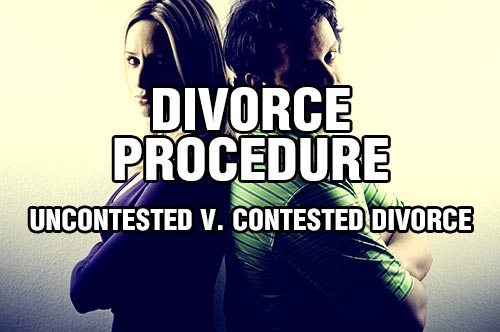One of the biggest assets in any divorce is the marital home. Even if you purchased the house before the marriage, depending on your state’s laws, the house (or at least part of its value) may still be considered marital property.
Like with other issues of divorce, your state’s laws will be the best source of information for how a court would divide the marital home. Deciding what you want to do with your house involves looking into your finances to decide what makes sense. For example, if you have credit card debts from the marriage that you’d like to pay off with cash, it may make more sense to sell the house.
If the market is going up and you have enough assets to give your spouse for his or her share in the property, you might want to hold on to the home. To make a truly informed decision, you should consider all the tax and financial consequences of all your options. You might need some help from a tax professional and/or an attorney for this.
Here’s a list of some common solutions:
1. Sell the house
To determine whether or not to sell, first ask yourself if you really want the house – memories and all. If you do, can you afford to make payments and pay for the costs of repairs and maintenance based on your salary alone? To decide if it makes good financial sense to sell, you should find out how much the house is worth and how much equity you have. You also might want to consider other factors in your market. Are property values going up or down, and has this been steady over the last few years? Are any new shopping centers or restaurants being built around you that would cause property values to go up?
You can hire a professional appraiser to value the house, or simply look at what other houses are selling for in your area. Of course, when looking at other houses you’ll need to consider things like square footage, number of bedrooms and baths, and extra features like a pool or bigger backyard. If you hire a professional, you should decide beforehand how to pay for the costs of the estimate – will each person hire their own estimator (more expensive) and come up with a number in the middle somewhere, or will you simply hire one estimator and split the fees? When deciding whether or not to sell, you can also ask yourself:
- How easy will the house be to sell? Do you need to make any major repairs, and will you be able to handle the stress?
- What is the market like? Will you come out ahead if you decide to wait a while before selling?
- How much will realtor fees, taxes, and other costs be? How much equity will you be left with?
- Are other houses in the area selling quickly? Do you have an estimate of how long it would take to sell?
- Would capital gains taxes apply to your situation?
- Can you and your spouse agree on a selling price?
- How will the proceeds be split when it does sell?
- Who will actually sell the house? One or both parties, or a realtor?
- When will you sell?
2. One spouse keeps the house and buys out the other’s share, either with equivalent marital property or in payments over time
If you go this route, you should determine how much each spouse’s interest is worth. You may or may not necessarily want to split your interest 50/50, depending on your circumstances. For example, if separate funds were used to purchase or improve the value of the home, the spouse who contributed the funds may be entitled to a higher share. If the house was purchased before marriage, and you’ve only been married a few years, you may want to take this into consideration. You would need to look to your state’s laws and possibly see an attorney if you’re confused about how to determine this.
People will often decide to get creative when splitting the house, which is fine, but there are financial and tax consequences, not to mention emotional ones, you should consider first. If one spouse will be keeping the house, the other will probably want to take their name off the loan. Not only will it be much more difficult to obtain a loan if you should want to buy another house, but the creditors can come after you if your spouse doesn’t pay. You can look into refinancing. You should decide whether you can trust your spouse to pay you back, if you don’t have enough marital property to balance the equation. You should try to have collateral back up the debt if you go this route.
3. One spouse can be granted exclusive use of marital home for a specified period of time, after which the house will be sold
This might be done if one spouse wanted to stay in the home (exclusive occupancy of the marital home), especially if that spouse had custody of the children, and there weren’t enough marital assets for one spouse to buy the other’s interest out. Or maybe selling the house right now is not in your best interest, for whatever reason.
This is also probably the most difficult arrangement, requiring the most amount of cooperation. Of course there are pros and cons to every option. If you do this, you’ll essentially be joint owners for a period of time. The spouse who isn’t living in the home still has an interest in the property. So he or she will most likely be concerned about how the other spouse is keeping up the property. This is a potential source for future conflict. If you are looking to sever all ties from the marriage, you should think extensively about this. To avoid as many problems in the future, you may want to make decisions now regarding how the property will be split when it is sold. If possible, get a written agreement. Think about the following questions:
- What will the value be based on? Will you value it at the time of the divorce or at the time of sale? What if it greatly increases in value? What if the increase is solely due to one spouse’s separate contributions to the property?
- Who will pay the mortgage and repairs during the exclusive use period? Will that spouse receive credit for their payments?
- Will the exclusive access to marital home during separation terminate upon remarriage or cohabitation of the spouse living in the house?
- Are you able to refinance and how will this affect you tax-wise?
All of the above options will have different effects on your financial and emotional life. You should strongly consider any tax benefits and consequences of selling versus keeping the home:
- how much equity you have in the house and how that relates to your goals and needs in your post-divorce life;
- how much it will cost moving out of the marital home versus staying in the house;
- what your immediate financial needs call for;
- what happens if i leave my marital home;
- leaving marital home with child;
- the effect your decision will have on your emotional life – stress and otherwise.
Here’s a resource where you can find an appraiser for your house or other property involved in your divorce:









